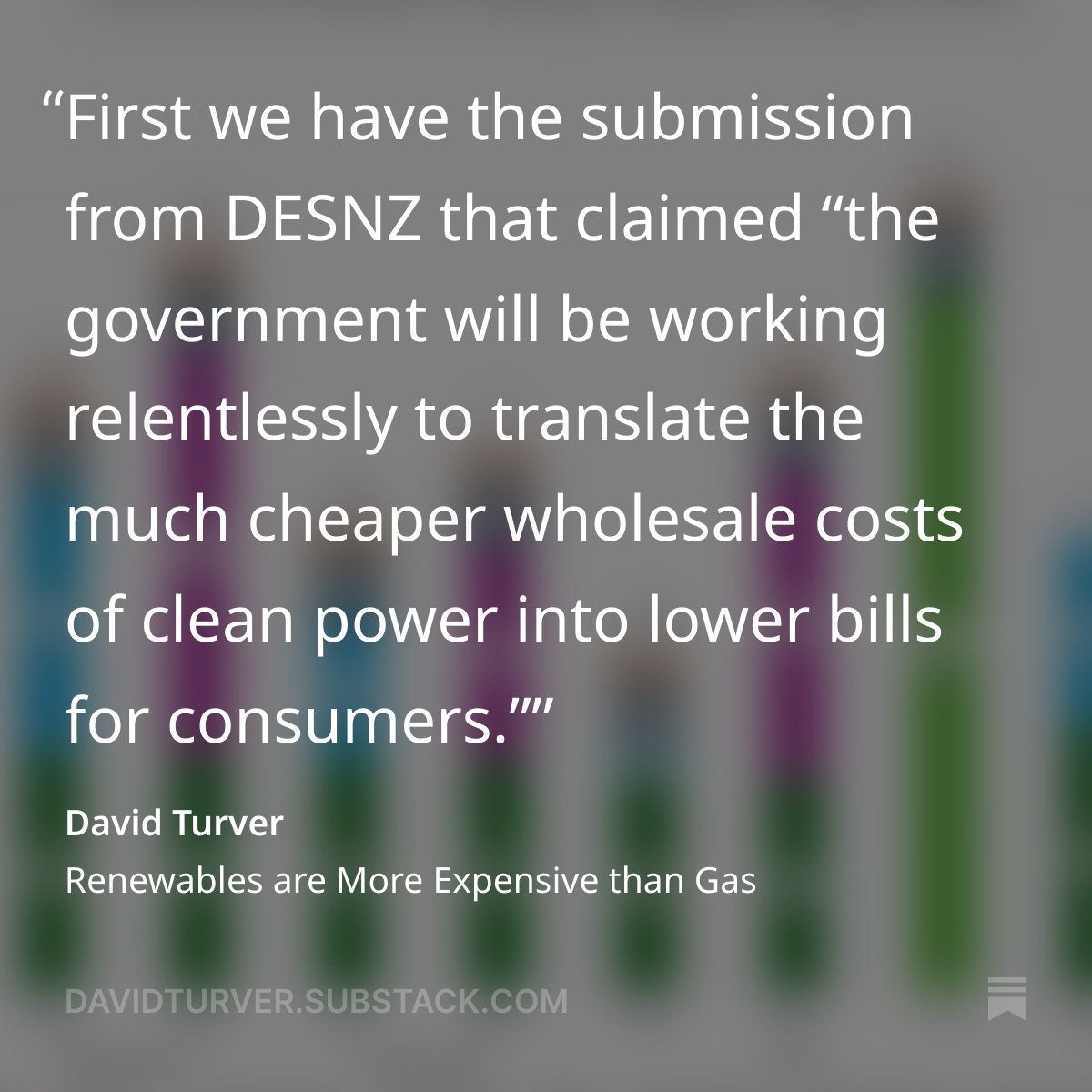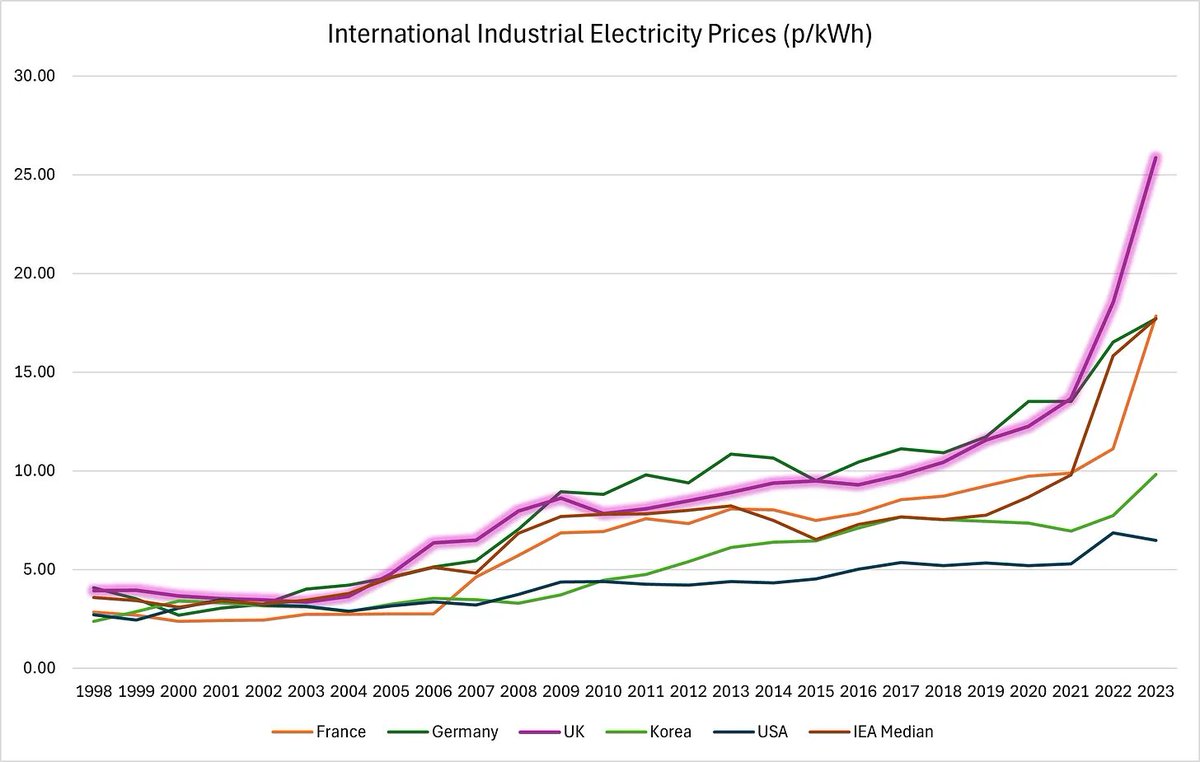Late last month, the CCC released their Methodology Report that gave a little more insight into their thinking, or lack thereof, when they produced the 7th Carbon Budget. How did they get it so wrong. A thread 🧵(1/n) 

First up, they assume even lower costs for fixed-bottom offshore wind than the Government's woeful Generation Cost report from 2023. The CCC's assumed costs for 2030 are less than half the value of contract awards in last year's AR6 auction. (2/n) 

Floating offshore wind is even more expensive and being offered £245/MWh in AR7, some six times more than the CCC's estimate for 2030 delivery. Worse, the CCC shows a declining cost trend, whereas recent auctions have shown an upward trend in prices (3/n)
The CCC made heroic assumptions about the capital expenditure. They have capex falling from £2,296/kW this year to just £1,125/kW in 2050. But Hornsea 3 is expected to cost almost £3,700/kW and Hornsea 4 was cancelled as uneconomic costing at least £3,333/kW (4/n) 
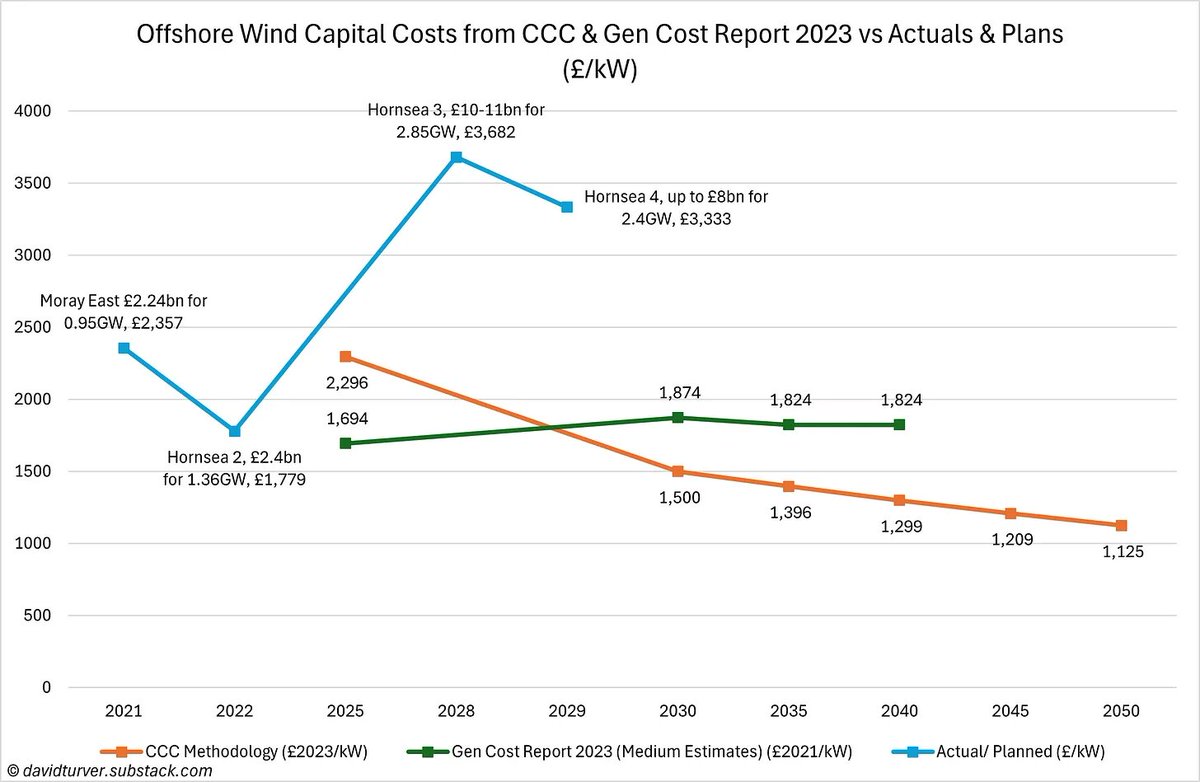
The CCC's forecasts make even less sense when you consider that Vestas turbine prices have risen some 76% since 4Q20 and the trend is still up. New orders were taken at €1.25m/MW in 1Q25 as an average across onshore and offshore (5/n) 
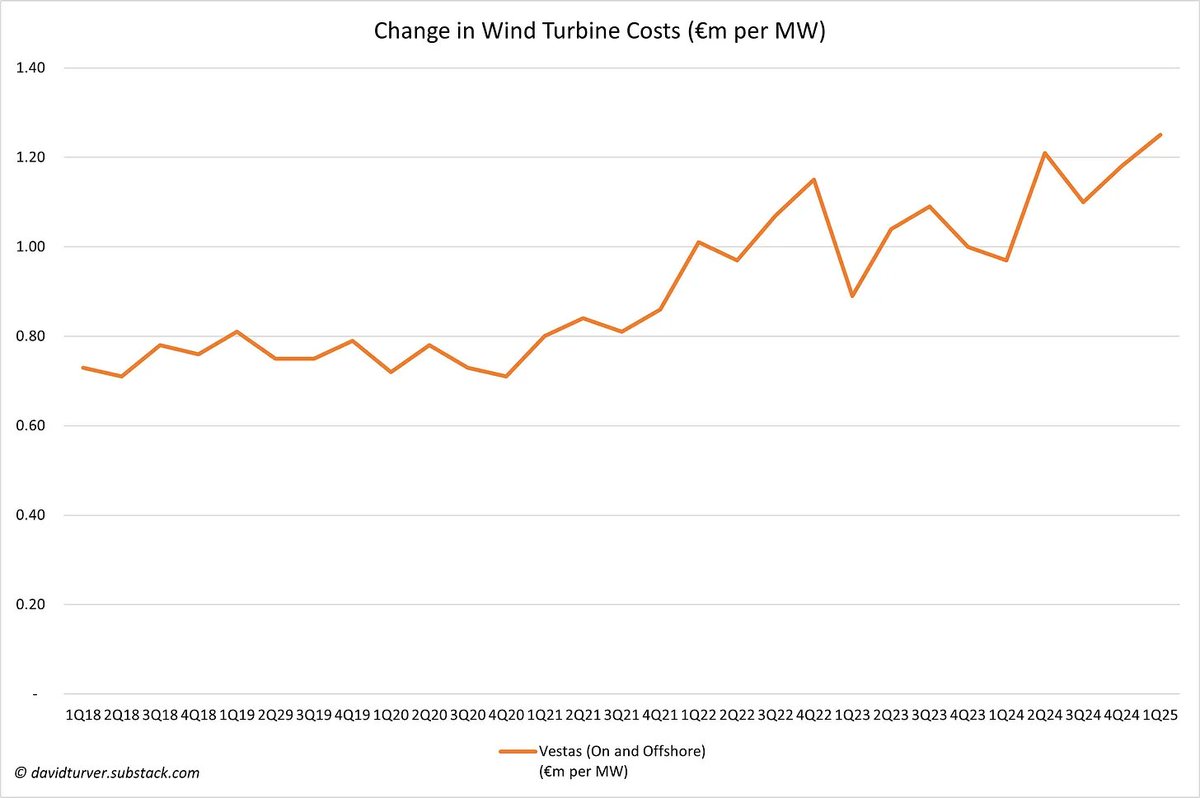
On initial capex, load factor, asset life and cost of capital, the Climate Change Committee is making wildly optimistic assumptions that give a fake and misleading view of the costs of their Net Zero plans (6/n)
The CCC made a similar error about the cost of solar power, with their estimate of solar power costs for 2030 falling to less than half the contract price awarded in last year's AR6 (7/n) 
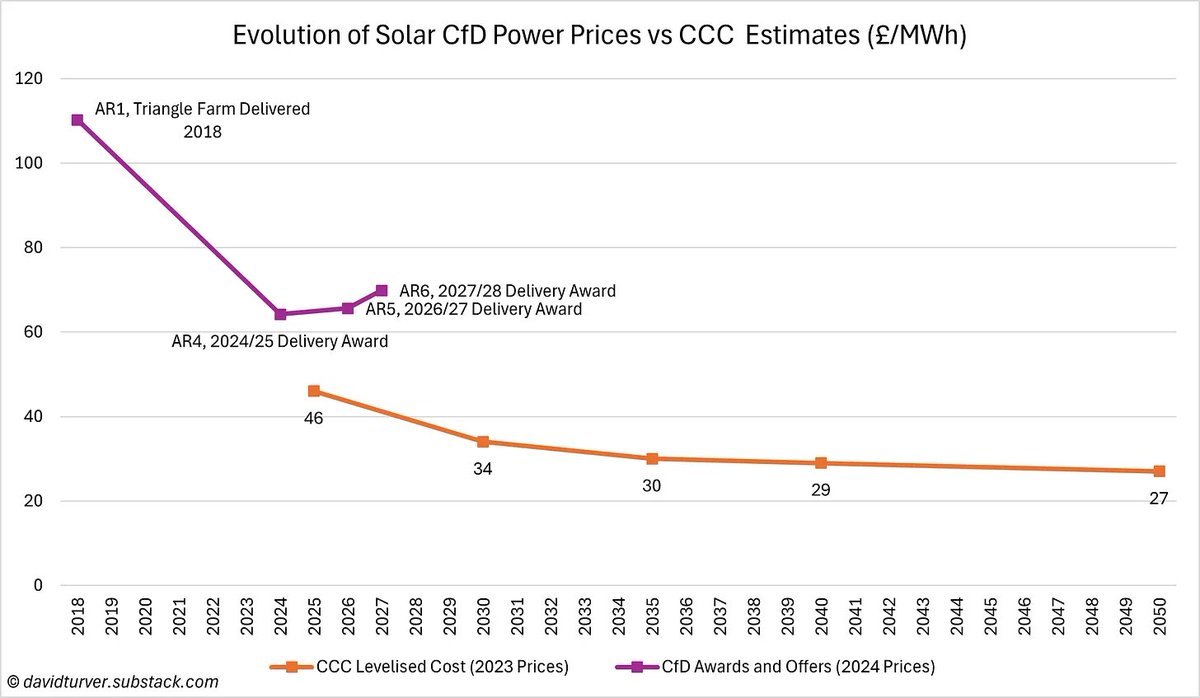
Alfreton and Stokeford solar farms were awarded contracts in AR4 and activated their CfDs earlier this year. Their accounts up to end 2023 show both had already spent much more than the CCC's estimate of the cost of solar for 2025 delivery (8/n) 
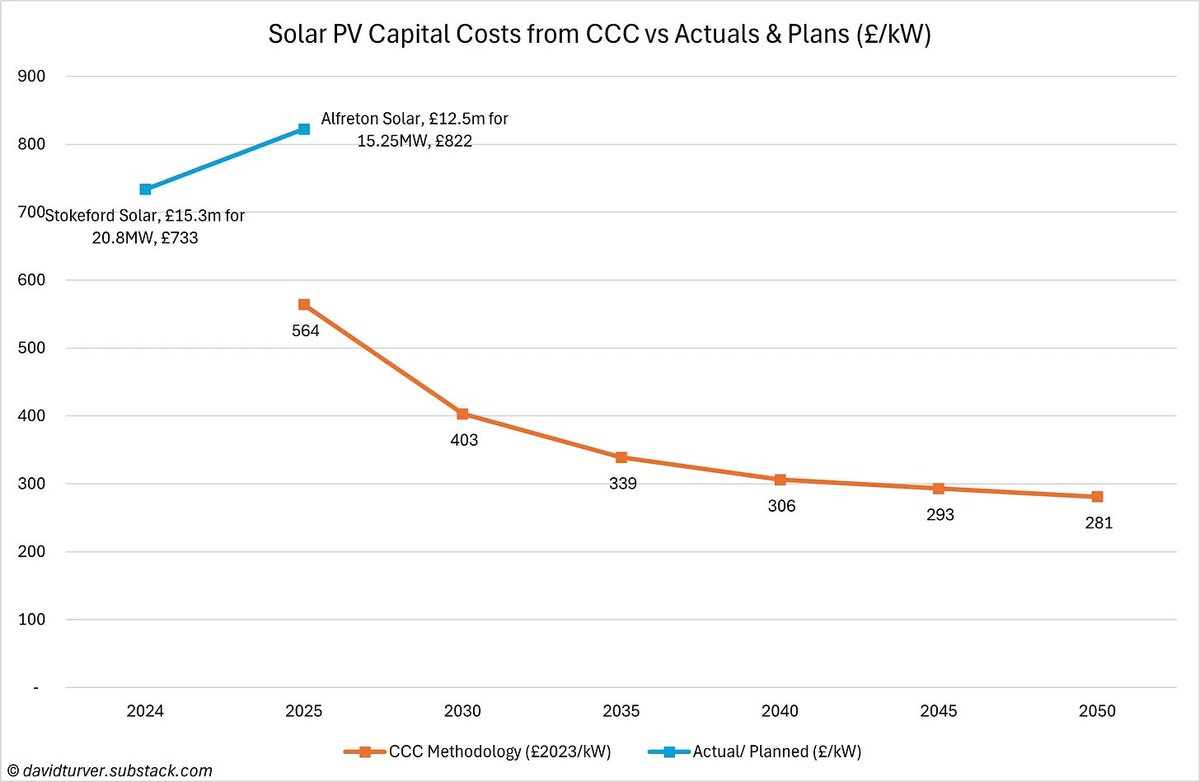
The CCC Methodology report does not even come up with a cost for onshore wind, despite their plan calling for capacity to more than double by 2050. (9/n)
The CCC have dramatically underestimated the costs of offshore wind &solar and omitted the costs of onshore wind making their overall cost estimates simply junk. They are worth less than the paper they are written on. (10/n) 
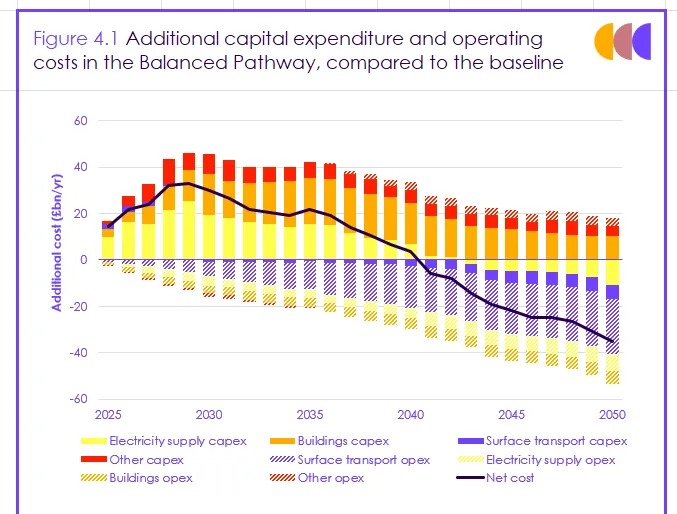
The CCC have fallen woefully short of the level of competence that we have a right to expect from public bodies making recommendations about spending our money. The Seventh Carbon Budget is the result of either institutional incompetence or wilful negligence (11/n)
The CCC should be forced to scrap their advice and start again (12/n)
If you enjoyed this thread please like and share. You can sign up for free to read the full article on the link below (13/13).
open.substack.com/pub/davidturve…
open.substack.com/pub/davidturve…
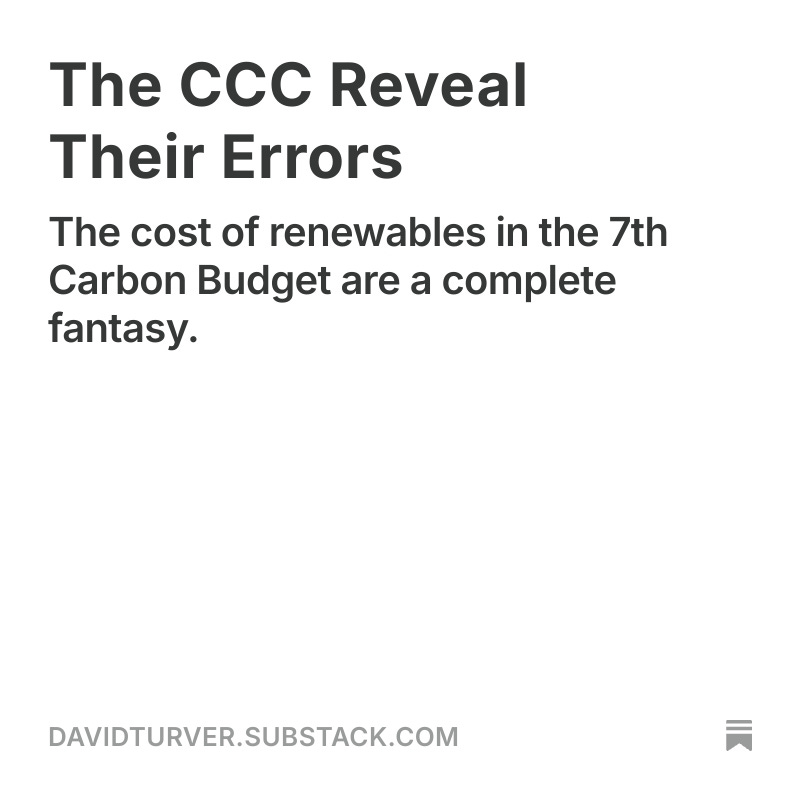
Hi @threadreaderapp unroll please.
• • •
Missing some Tweet in this thread? You can try to
force a refresh










